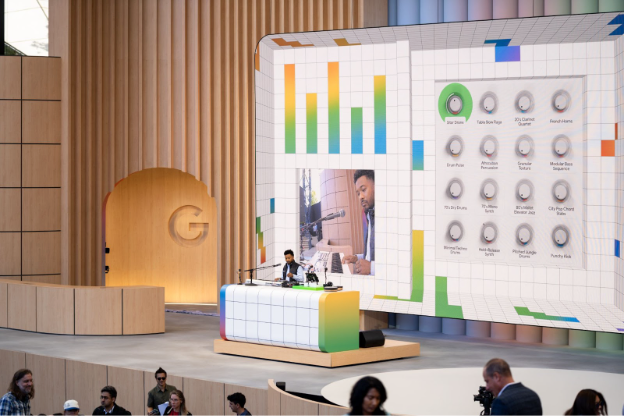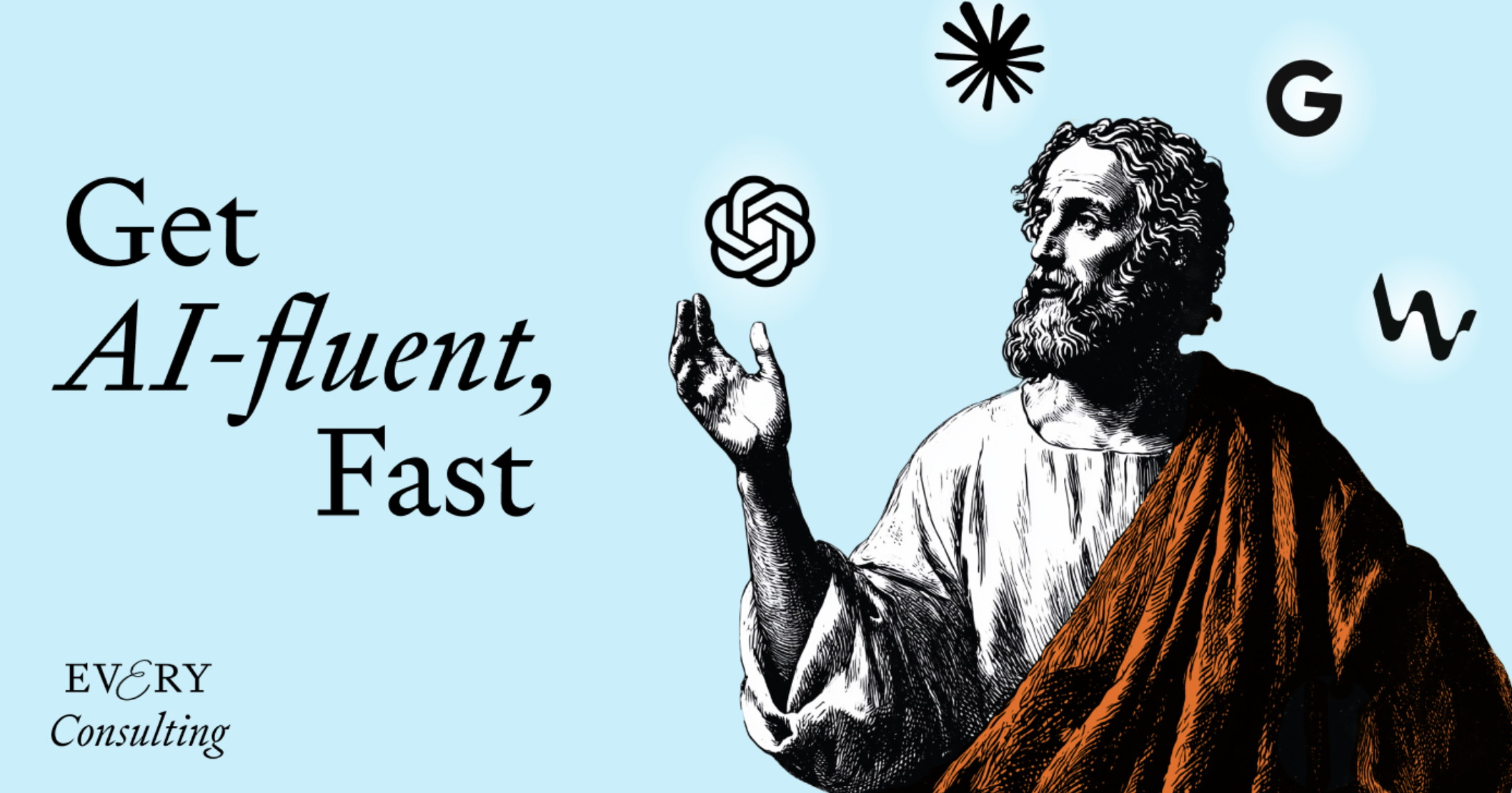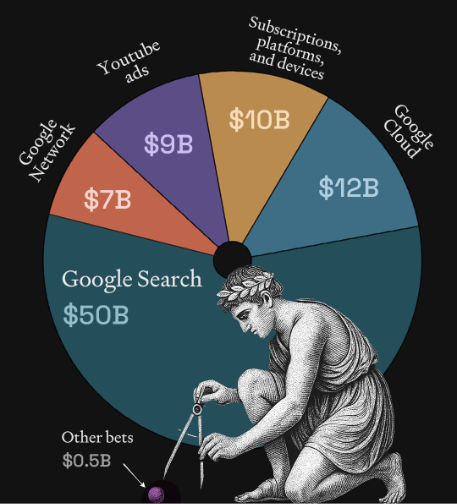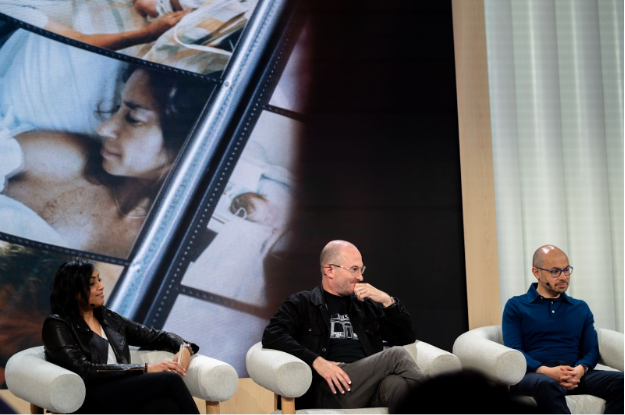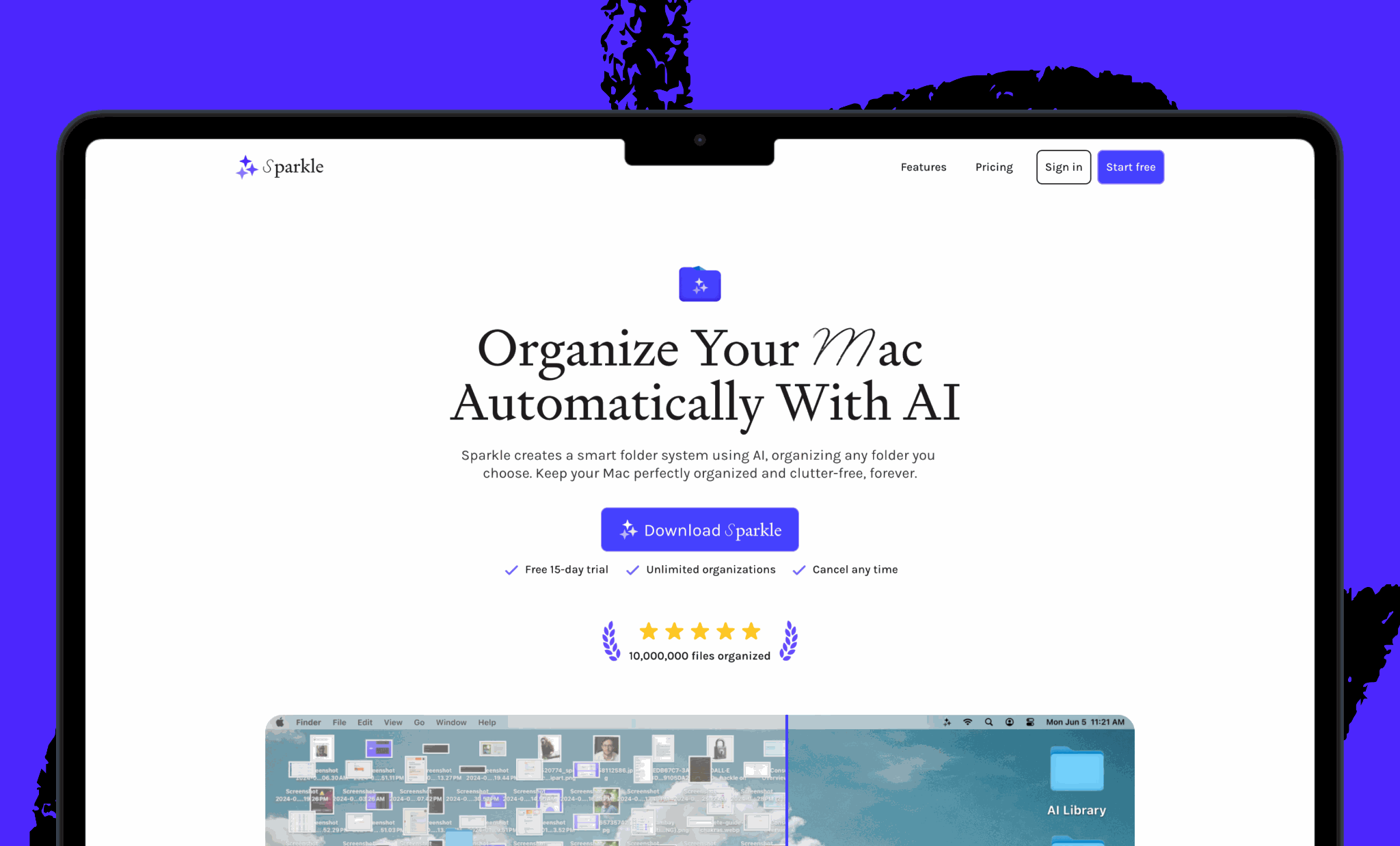Google’s AI Vision: Make Tech Human Again
- Get link
- X
- Other Apps
Google's AI Vision: Make Tech Human AgainThe company's hurricane of AI product releases at Google I/O adds up to a clear vision for AGI and for humanity.by Alex Duffy  Was this newsletter forwarded to you? Sign up to get it in your inbox. I found myself shaking my head in disbelief and surprisingly emotional throughout the entire two days of Google I/O, the company's annual developer conference that was held this week. The recording artist Toro y Moi kicked off the event with an AI-powered live music set, but it was his closing words that captured what I'd feel for the next 48 hours: "We're here today to see each other in person, and it's great to remember that people matter." Since 2015 I've known AI could fundamentally change the world, but this was the first time I felt so clearly and viscerally that it's actually happening—right now. Surprisingly, it might make our world more human, not less. At every table I sat down at, strangers would look up with wonder in their eyes, desperate to talk about what they'd just seen. In just two days, Google announced more new products and technical advances than most companies have in their entire existence: Video generation tools Veo 3 and Flow took the internet by storm with generative media that was miles better than anything ever seen before. Gemini diffusion, a new type of architecture for language models, teased a not-so-distant future where these models are 20 times faster and can create full apps in the blink of an eye. Unreleased mixed-reality glasses with a built-in screen translated languages and streamed video live. In all, there were literally 100 announcements. It was overwhelming. And it's not like Google was saving up for this: The company casually released an updated Gemini 2.5 Pro—a model that was comfortably topping nearly every benchmark (at least until Claude 4 Opus's release yesterday)—on a random Tuesday a few weeks ago. There are plenty of great write-ups covering each release in detail. This is not one of them. Instead, I want to talk about what the tsunami of releases adds up to. Google calls it its "Gemini Era" after its flagship AI models. This is what exponential growth looks like: We're hitting the knee of the curve where compounding gains suddenly become undeniably visible. Google has managed to align its immense resources, people, and vision toward a single clear goal—artificial general intelligence (AGI). What does Google mean when it says AGI? Demis Hassabis, co-founder and CEO of Google's AI laboratory DeepMind, explained they're building toward AI that deeply understands our physical environment and the context we live in, beyond just symbols like math and language as current models do. AGI of this form would enable a universal AI assistant to "crack some areas of science, maybe one day some fundamental physics," he said. Crucially, he believes this intelligence can amplify what makes us human, not replace it. If 90%+ of your team isn't using AI everyday, you're already behindYou're not going to get good at AI by nodding through another slide deck. Every Consulting helps teams level up—fast. We've trained private equity firms, leading hedge funds, and Fortune 500 companies. Now it's your turn. Customized training. Hand-held development. A rollout strategy your team will actually use. Let's make your organization AI-native before your competitors do. Google's unique advantageGoogle has brilliant AI researchers, but that's not why they're winning. They're winning because they've spent decades constructing an ecosystem that's now building on itself. The core of Google's strength remains Search. Search is its north star, providing what Elizabeth Reid, Google's head of Search, called "constraints as space for creativity." Building for Search forces them to think about speed, scale, quality, and human desire. It's these constraints that have helped them wrangle an unwieldy organization into pulling in a single direction—a feat much easier said than done for an organization of any scale, let alone for the fifth-largest company in the world. Search is also the cash cow that funds nearly everything they do. In the first quarter of 2025, Google made over $50 billion from Search alone—more than half the company's total revenue. To give you a sense of scale, the entirety of General Motors is currently worth $47 billion. But Search is just the start. They've patiently layered on other massive ecosystems—YouTube's vast video data. Android's billions of devices spanning smartphones, smart glasses, and now cars. Maps guiding billions of journeys each month. Gmail, Documents, and Drive. Large-scale hardware infrastructure running custom-designed chips (TPUs, or tensor processing units, that only Google has, presciently optimized for AI), and deep investments in robotics informed by real-world learning from Waymo. Most companies would be lucky to have just one of these assets. Google has them all and now also a unifying goal: Achieve AGI. As Josh Woodward, vice president of Google Labs and Google Gemini, said, "Gemini is the thread bringing Google together." Google also seems to understand better than anyone else how critical openness and humility are. Where other companies may cling to secretive labs and product announcements cloaked in mystery, Google's Gemini Era thrives because, as Woodward put it, it's embracing an "age of exploration," where they need to "follow the feedback," and are iterating publicly. They're also taking it personally, infusing care in a way I haven't seen before from a company of this scale. Founder mode is clearly back on the menu as well. Cofounder Sergey Brin is leaning back in. Hassabis was everywhere at I/O, sharing his incredibly ambitious vision for the future—where AI has a deeper understanding of our physical world and, through advances in robotics, helps us mold it effortlessly. But one moment stood out in particular. The human heart of AIOn stage with filmmaker Darren Aronofsky speaking to a packed room about storytelling in the age of AI, Hassabis opened his heart. Hassabis and Aronofsky were joined by Eliza McNitt, a writer and director who specializes in virtual reality. Together they shared a new film that McNitt directed. Using Google's brand-new video and audio generation tool, Flow, they created scenes that would have been impossible just months ago, combining cutting-edge methods with traditional ones to push the boundaries of film as a medium. McNitt used photographs her late father took of her as a baby to train the AI. They created scenes starring her AI doppelganger and reflecting her own story—how she almost died on the first day of her life from complications in childbirth. It was strikingly intimate, making the jam-packed room feel small and close-knit. Visibly moved, Hassabis shared that his grandmother passed away in childbirth while delivering his mother. It was an incredibly vulnerable moment that made you forget this was a developer conference put on by an extremely profitable capitalistic organization. This vulnerability was part of why Google feels different. Hassabis repeatedly stressed the importance of collaboration between people who deeply understand AI and those who are experts in other domains. As I've written before, AI isn't a product—it's leverage. Hassabis was saying he wants to put that leverage in the hands of the artists, architects, doctors, musicians, engineers, and scientists who possess the vision to move humanity forward. Shaping a human futureGoogle isn't perfect. The company still has plenty of blind spots. In conversations with staffers after the event, some product integrations felt vague, overlapping, or incomplete. I did not get clear answers as to the relationships between Google Search's new AI mode, search within AI Studio, and Deep Research in Gemini. Google's past tendency to abruptly sunset beloved projects that are still very much in use (check out the 296 projects listed on Killed by Google) looms as a legitimate concern for those who want to build lasting solutions on its ecosystem. But despite these uncertainties, the trajectory feels unquestionably right: Define clear goals and push toward them together. Next stop, AGI. Over the past 20 years technology (and society) has prioritized the lowest common denominator. Algorithms that treat us as averages, not individuals, are akin to a cake-only diner. But what I saw at Google I/O was different: AI that could finally make technology personal again, that could understand and amplify what makes each of us unique rather than flatten us into data points. What will stay with me from Google I/O isn't just the technology, as breathtaking as it was—it was how human it all felt in a field that often doesn't. Toro y Moi's words stuck with me all the way to the very end, in my conversation with a woman delivering water and food to demo teams. Casually chatting, I discovered she was finishing a Ph.D. in astrophysics while also working at the company on giving robots sight. This was the crux of the event to me. Behind every demo, every breakthrough, were people passionately working toward something they cared about. We're entering an era of compounding returns, where each breakthrough enables the next at an accelerating pace. Change is inevitable. But as Hassabis and Aronofsky said, we can shape it. We can give it soul. It will take work, but I hope that AI (and soon robotics) might help us think bigger, and bring about a future more personal, creative, and human than our recent past. Leaving Google I/O, I am hopeful. Life in 10 years won't look anything like it ever has before, and I think that's a good thing. Alex Duffy is the head of AI training at Every Consulting and a staff writer. You can follow him on X at @theheroshep and on LinkedIn, and Every on X at @every and on LinkedIn. We build AI tools for readers like you. Automate repeat writing with Spiral. Organize files automatically with Sparkle. Deliver yourself from email with Cora. We also do AI training, adoption, and innovation for companies. Work with us to bring AI into your organization. Get paid for sharing Every with your friends. Join our referral program. Get More Out Of Your SubscriptionTry our AI tools for ultimate productivity |
- Get link
- X
- Other Apps

